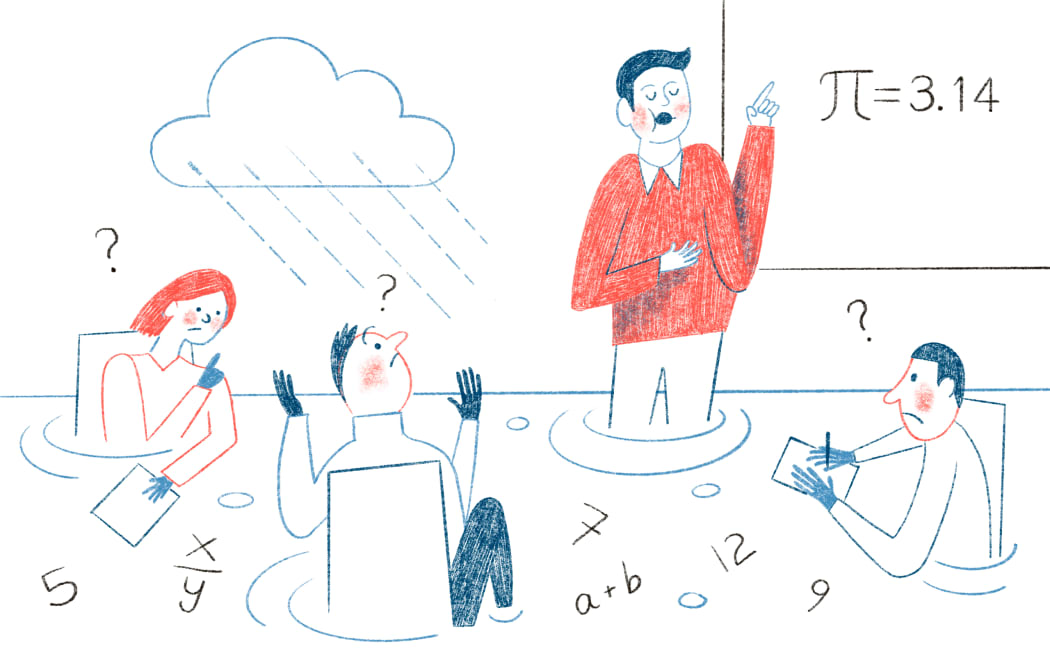New Zealand has a maths problem. Our grades are getting worse. What is the solution?
By Venetia Sherson
At primary and intermediate school, Megan was a quick learner. She flew through most subjects, scoring good marks in an advanced learning programme. But maths made her feel sick to her stomach. Now 19, she can still remember the shame in not being able to grasp a subject that seemed unfathomable. “I would quite literally feel like I was going to throw up.” It began to affect her confidence and self-esteem. “I began to think I was dumb.”
Sophie, 20, had a similar experience. Despite good grades in her other subjects, maths remained elusive. At junior high school, large classes compounded the problem. “It was like the perfect storm: a struggling student and the distraction of 90 kids in one room. There were so many students with different learning preferences. There was little chance for one-on-one support. I did what I could, but I was getting further and further behind, It was totally degrading. I just felt stuck.”
For Xavier, 16, maths was possibly the worst thing in his life next to being bullied. When faced with a maths problem he couldn’t solve, he’d experience blind panic. He felt he couldn’t ask questions in class because it would show he was dumb. His mother believes it’s hard for Māori kids to ask for help in the classroom. “They don’t want to look weak.” A prison officer, she says the same applies to Māori men who find it hard to ask for help if they can’t provide for their families. “I see the consequences of that in my work. Some of the men (in prison) have left school at 12.”
The anecdotes sadden Jean McKenzie, a Waikato teacher with 30 years’ experience and a particular love for maths. But they don’t surprise her. They are typical of many students who enrol in Mathematics for a Lifetime, a charitable organisation, founded by McKenzie, which offers initiatives, including free tuition to kids from low income families.
But they are not just stories from the poor side of town. McKenzie also runs a one-on-one maths coaching programme through her business, Impact Tutoring, where students pay upwards of $50 an hour for one-on-one tuition. Demand for places is increasing every year as parents try to prevent their kids falling behind. There is also a trend to enrol much younger children. “There has been a change with younger children and younger parents coming through,” McKenzie says. “Those parents are much more deliberate in ensuring their children are doing well at an early age, rather than leaving things to a later stage. Parents want to nip things in the bud.”
Parents’ concerns are understandable. New Zealand’s track record in maths is poor and getting worse. According to international studies, we are now one of the least numerate countries in the developed world. In the latest (2019) Trends in International Maths and Science study (TIMSS), New Zealand’s nine-year-olds (Year 5) ranked 40th out of 64 countries. Year 9 students' fared worse. Their scores fell by the largest margins since the study began in 1994. Māori and Pasifika students ranked lowest of all. In 2021, a report published in New Zealand by the Royal Society Te Apārangi advisory panel, which advises the Education Ministry, noted some disturbing facts: a quarter of preschoolers can’t count from 1-10. By Year 9, fewer than one tenth of students are working at the appropriate level. Massey University distinguished professor of mathematics Gaven Martin, who chaired the panel told the New Zealand Herald, maths education was in a "goddamn mess".
Such reports provided fodder for politicians on the recent campaign trail. National Party leader Christopher Luxon called for primary school students to study maths for an hour a day. Labour leader Chris Hipkins promised additional emphasis on budgeting and financial literacy.
At the coalface, teachers – already coming to terms with substantial curriculum overhauls – shake their heads in disbelief at the thought of an increased workload without additional resources. They say there are many reasons why Kiwi kids do poorly in maths – not all of them to do with classroom practice.
Timothy Low, 28, is head of mathematics at Melville High School, a Decile 4 school in Hamilton with a roll of around 600, of which nearly 60 per cent are Māori. He could have chosen a research career in maths or physics, but opted to pursue his love of teaching, a decision he has not regretted. Like others, he is concerned at New Zealand’s maths results. While he doesn’t believe students here are fundamentally less smart than students in other countries, he says we do have particular issues that contribute to the outcomes.
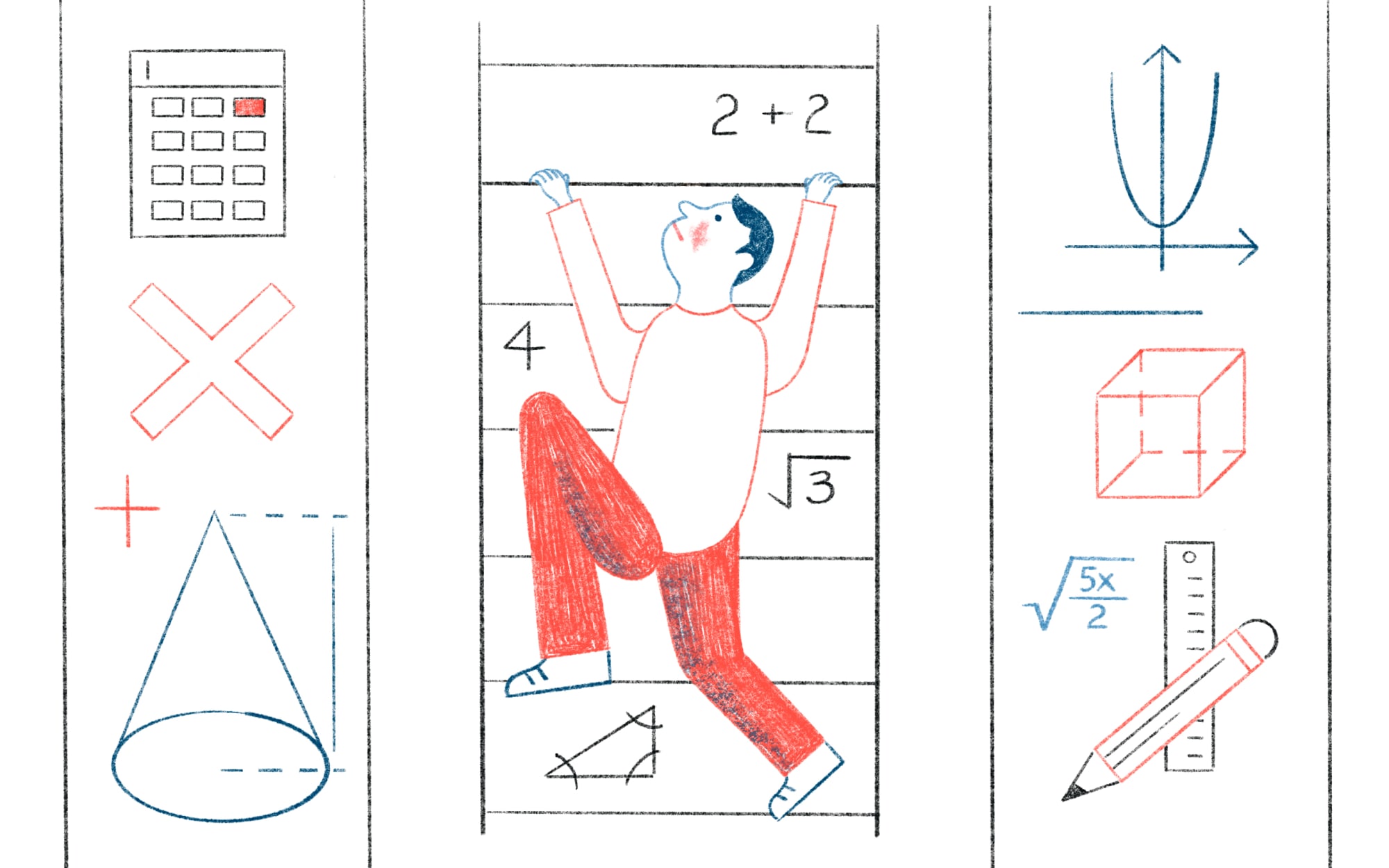
Photo: RNZ
One is attitude.
“There is a perception (in New Zealand) that it is socially acceptable to be poor at maths when it’s not socially acceptable to be poor at literacy. When a child is struggling, some parents and even some primary school teachers will say, ‘Oh, it’s ok, I was never any good at maths’. That normalises things, which is not good. Asian parents, on the other hand, will say, ‘I wasn’t good at maths, so you need to be good at maths’.”
He says, while attitudes are changing, it’s hard to get across to some parents that the world has changed since they left school. “I still have parents who say maths isn’t important. They may even say education is not important because they got an apprenticeship without much education. But kids today will struggle to get apprenticeships if they don’t have basic maths and literacy skills.”
Another contributing factor is the capacity of teachers to cater for the broad range of abilities in a class. “Both the Education Ministry and PPTA discourage streaming, so the range of abilities is extensive. I have had classes where one student is at curriculum Level 2 (Years 3-4 at primary school); one is at Level 8 and the rest are in between. The difference between them is vast. It’s impossible to cater for 30 kids in one class with that range. Across several classes that could be between 90 and 120 students.”
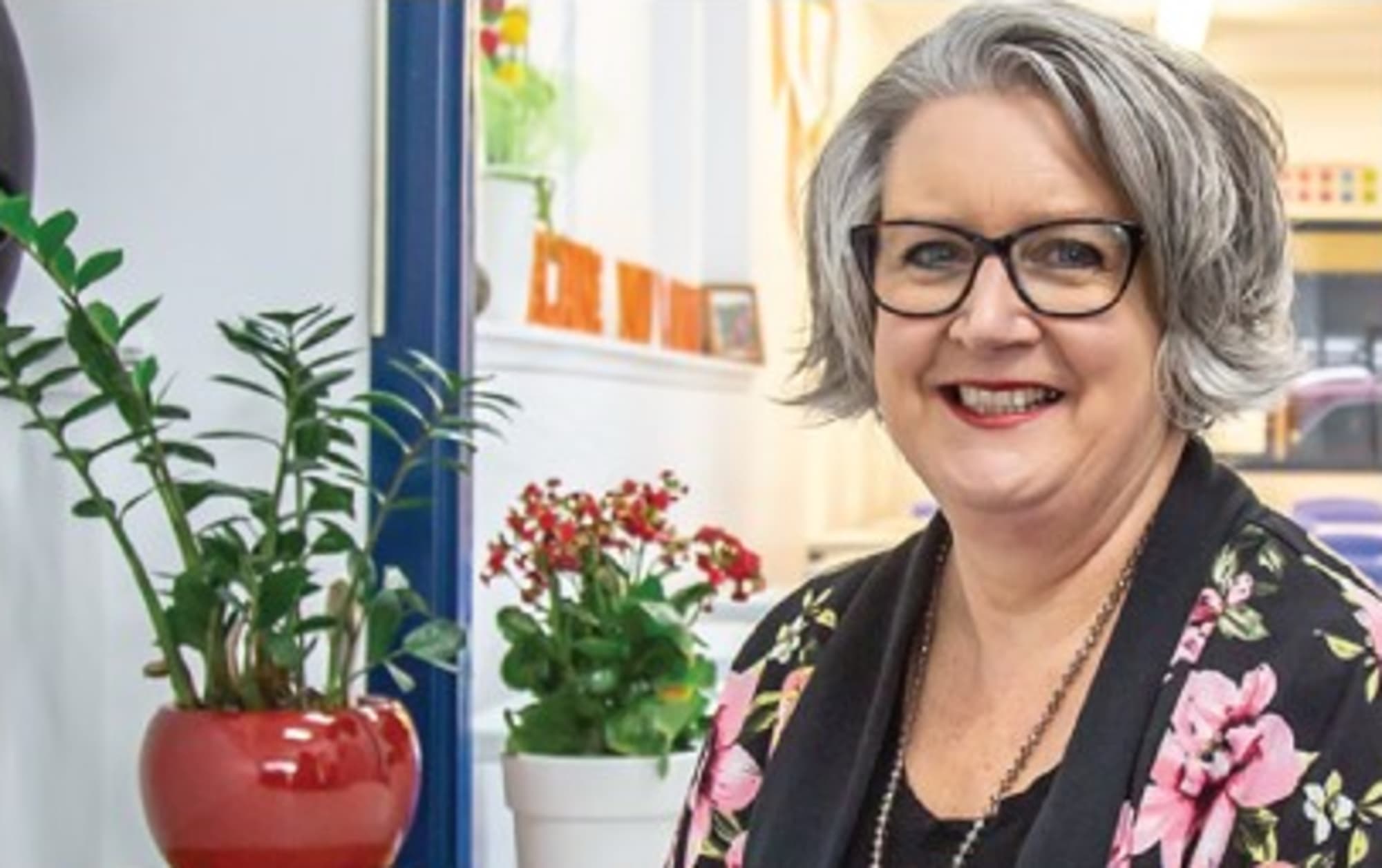
Jean McKenzie Photo: Supplied
The infamous New Zealand “tall poppy syndrome’ also plays out in the classroom. “Kids – especially Māori – don’t want to stand out as the intelligent kid. We know they can do well, but they hide their ability because they don’t want to be seen to be better than others.” Others are reluctant to ask for help in the classroom and risk being seen as dumb.
Issues beyond the school also have an impact. “Increased screen time, social media, decreased attention spans, lost learning during the pandemic, and lack of parental involvement all make it harder for teachers to manage behaviour in the classroom.”
Home environment is key, says Low. The TIMSS report found New Zealand had one of the biggest achievement gaps in maths based on the number of books students had at home. Students at schools in rich communities did better than students in poorer communities, as did students who reported a high sense of belonging and students that went to schools that emphasised academic success.
So, what will it take to turn things around?
Low says there is no silver bullet. But smaller classes would be a start. “Anyone can become better at maths with three key components: Teacher, time, and environment. If I have the time to sit down with a student one-on-one, they’ll gain confidence and understanding and even get enthusiastic. But that only lasts as long as I am with them. I can’t spend 50 minutes with only one student, when I have 29 others. You can build their confidence slowly, but it takes time.”
McKenzie agrees time and one-on-one help can be transformational. She likens maths to scaffolding. “You have to have things firmly in place before you start building. If you have that strong foundation you have the confidence to improve. If you don’t, you fall further and further behind. With a tutor, students aren’t distracted by others in the class, they can ask questions and not feel they will look silly in front of their mates. They can take risks because they aren’t concerned about getting things wrong.”
She appreciates one-on-one tutoring cannot be replicated in schools, but she says in the classroom, children need more time to practise basic skills to ensure they are bedded in before moving on to the next level. “The curriculum is so full. I hear kids say over and over ‘we don’t get time to practise’. I liken it to the All Blacks: they can throw balls, kick, and strategise, but it is only through practice that they can do those things under pressure without thinking. This deeper learning sets them up for pressure situations like exams.”
She says parents who enrol their children for tutoring are often at their wit’s end. “The majority are really worried. Consistently they want their kids to have a good life and do well. That’s fundamental.”
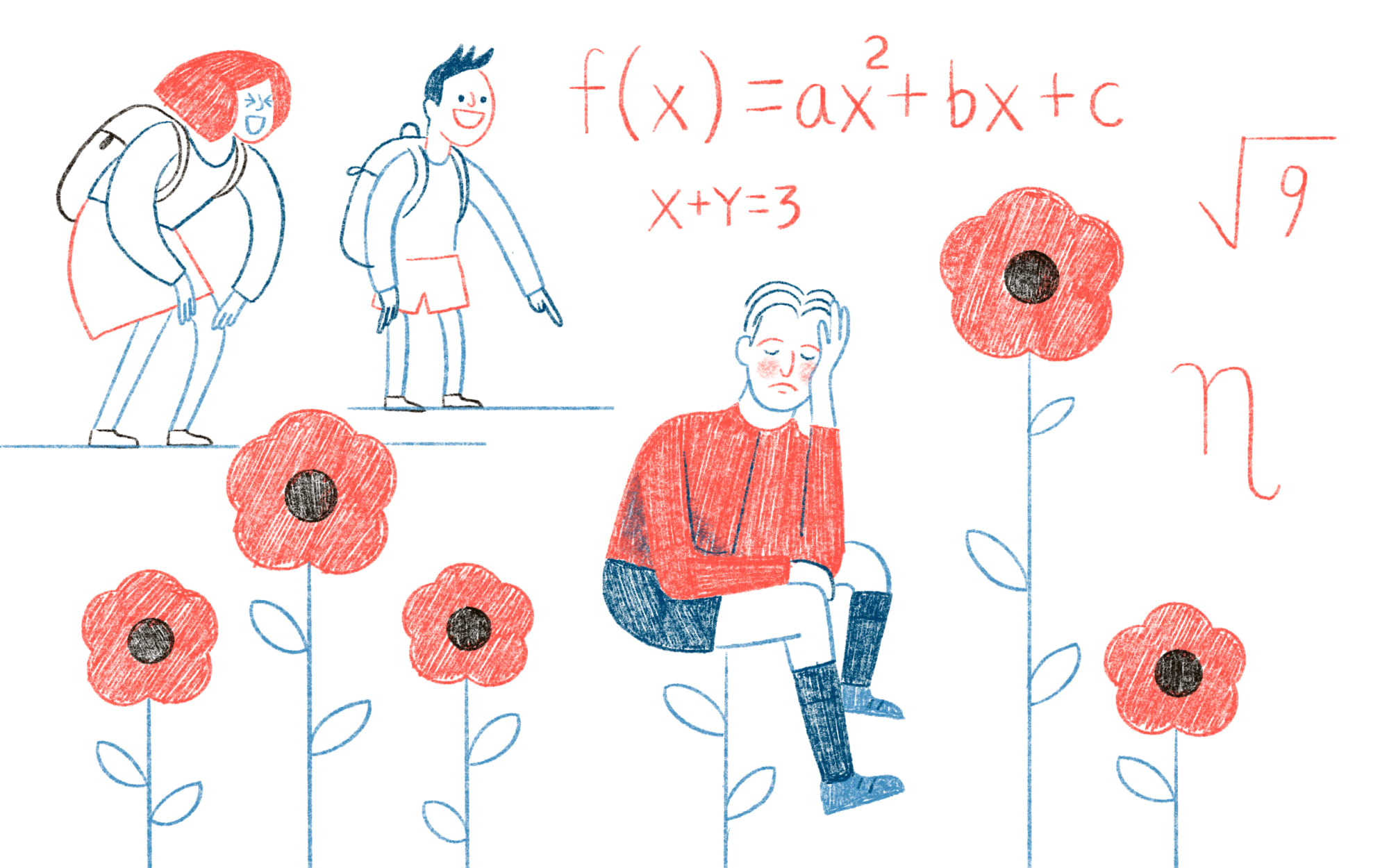
Photo: RNZ
But not all families can afford to pay for help. In Britain, where demand for private tutoring has increased by 20 per cent in the past decade, and children as young as three and four are being enrolled, there is increasing concern that the private tuition market is putting children from poorer backgrounds at even greater disadvantage.
Low agrees there is a growing risk of inequity between those who can afford to have extra help and those who can’t. But he also knows how difficult it is for parents to try to help their children who are struggling. “Parents can’t do their children’s maths. They may use algebra in their lives but not in the way it is used or taught in the classroom today.”
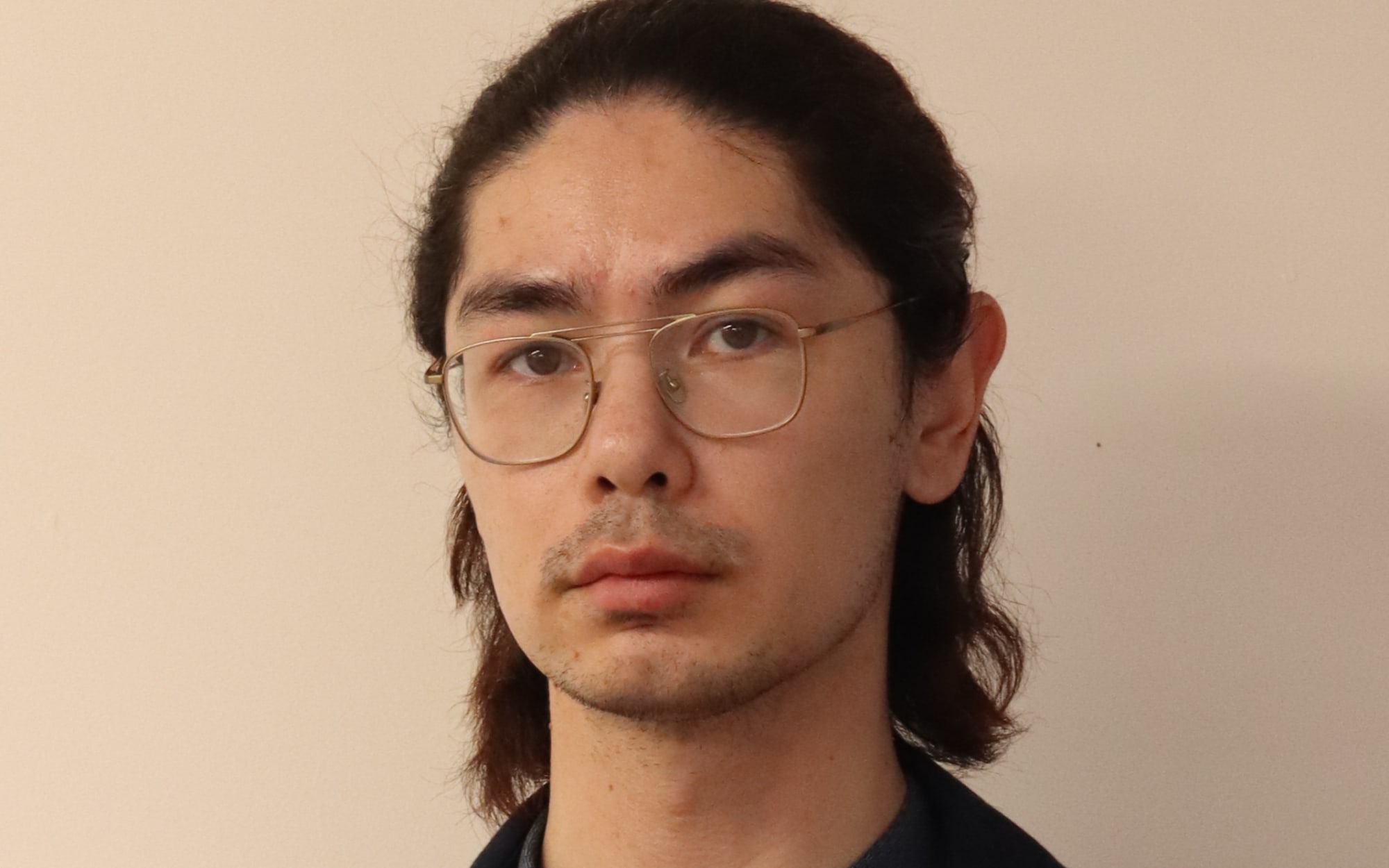
Timothy Low Photo: Supplied
He isn’t optimistic about the solutions proposed by politicians. And he’s also wary of trying to replicate the approach of East Asian countries, like Singapore, which consistently top international tables. “New Zealand students and society are fundamentally different from those countries. New Zealand has a more laid-back, ‘she’ll be right’ culture. In East Asian countries, there is a lot of pressure to succeed. Kids are in class before school, during school and after school.”
The answer for New Zealand, he says, lies in retaining and attracting good teachers who expect – and can achieve – the best result for any student, no matter what level they are at. “The important thing is how they have progressed. That’s what teaching is really about. Our job is to provide opportunities and see those opportunities taken up.”
This year, Low’s position at Melville High School has been dis-established. Melville High School and Melville Intermediate will close at the end of the year and be replaced on the same site with a Year 7-13, Mangakōtukutuku College. Teachers had the option of applying for roles at the new school. Low will return to university before deciding on his next move.
Footnote: All three students mentioned at the start of this story went on to succeed in maths after tutoring through sponsorship from Mathematics for a Lifetime Trust. Megan gained enough confidence to prepare for NCEA Level 1 in Year 11. She plans to be an occupational therapist. Sophie passed NCEA maths levels 1, 2 and 3 and is considering training as a teacher after travel. In Year 9, Xavier topped his class in maths. He gained more confidence and was selected as captain of the Under 15s rugby team. The kids who had bullied him, were in his team.
